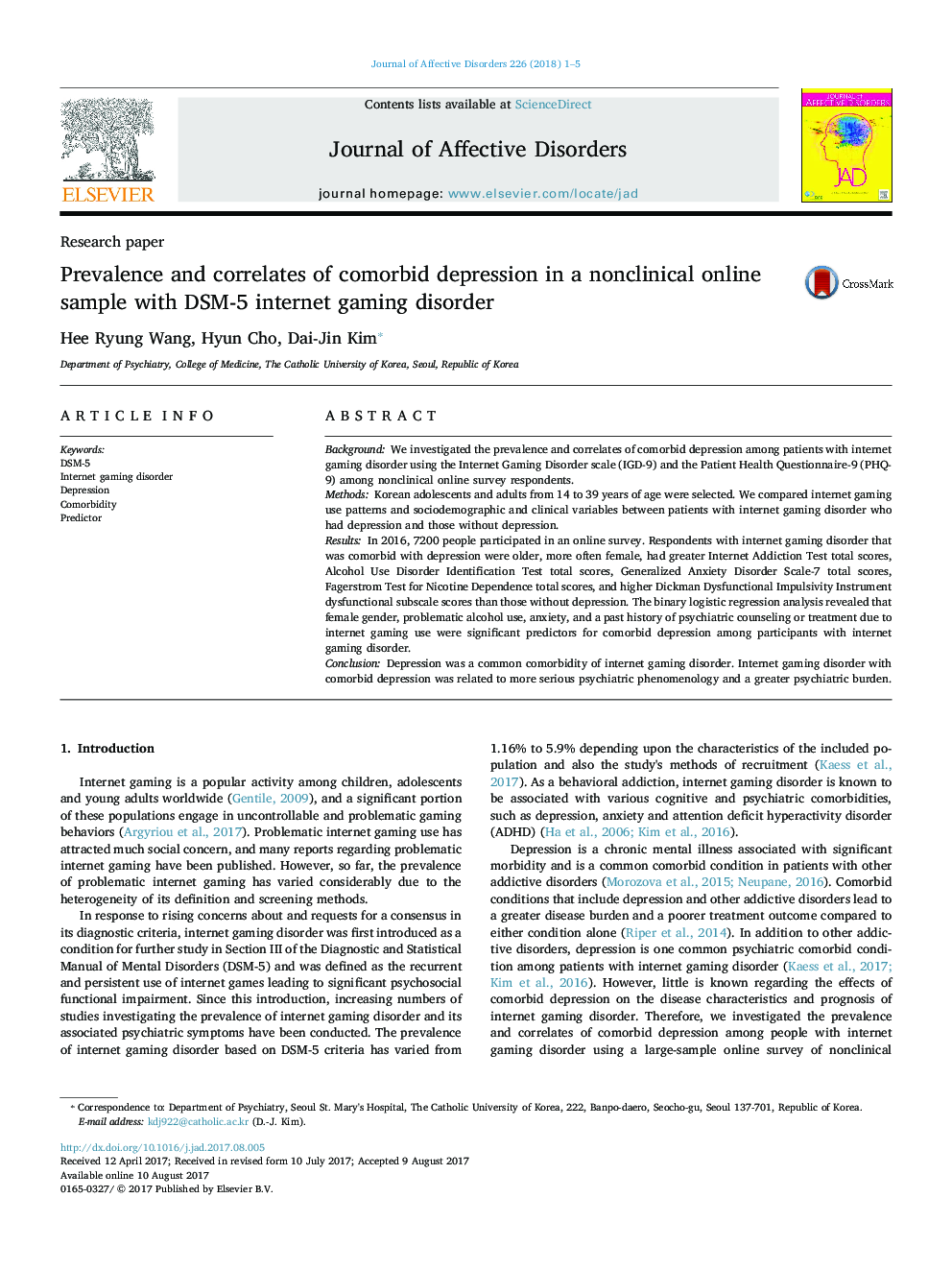| کد مقاله | کد نشریه | سال انتشار | مقاله انگلیسی | نسخه تمام متن |
|---|---|---|---|---|
| 5721632 | 1608099 | 2018 | 5 صفحه PDF | دانلود رایگان |
- Depression is a common comorbid condition among patients with IGD.
- The comorbid condition is associated with serious clinical phenomenology.
- Co-administration of IGD-9 and PHQ-9 is useful in screening comorbid condition.
BackgroundWe investigated the prevalence and correlates of comorbid depression among patients with internet gaming disorder using the Internet Gaming Disorder scale (IGD-9) and the Patient Health Questionnaire-9 (PHQ-9) among nonclinical online survey respondents.MethodsKorean adolescents and adults from 14 to 39 years of age were selected. We compared internet gaming use patterns and sociodemographic and clinical variables between patients with internet gaming disorder who had depression and those without depression.ResultsIn 2016, 7200 people participated in an online survey. Respondents with internet gaming disorder that was comorbid with depression were older, more often female, had greater Internet Addiction Test total scores, Alcohol Use Disorder Identification Test total scores, Generalized Anxiety Disorder Scale-7 total scores, Fagerstrom Test for Nicotine Dependence total scores, and higher Dickman Dysfunctional Impulsivity Instrument dysfunctional subscale scores than those without depression. The binary logistic regression analysis revealed that female gender, problematic alcohol use, anxiety, and a past history of psychiatric counseling or treatment due to internet gaming use were significant predictors for comorbid depression among participants with internet gaming disorder.ConclusionDepression was a common comorbidity of internet gaming disorder. Internet gaming disorder with comorbid depression was related to more serious psychiatric phenomenology and a greater psychiatric burden.
Journal: Journal of Affective Disorders - Volume 226, 15 January 2018, Pages 1-5
